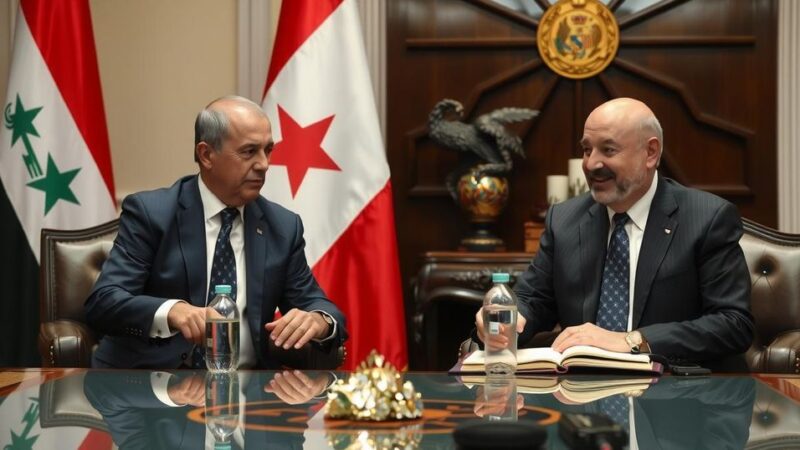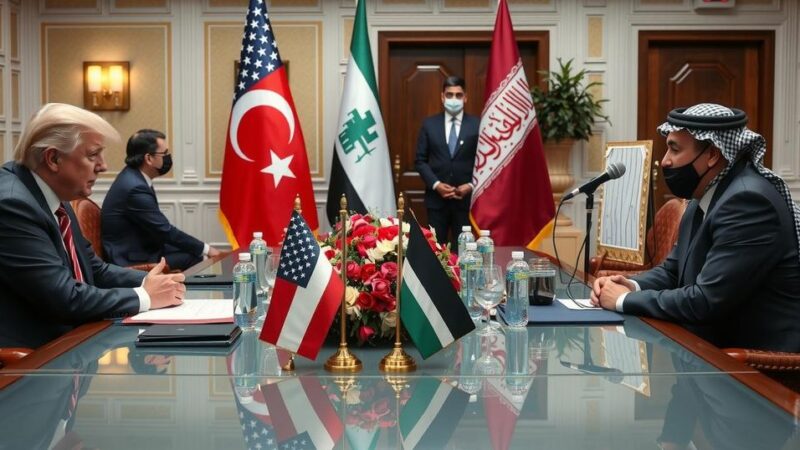World leaders at the United Nations General Assembly faced pressing warnings of escalating Middle Eastern conflicts, with no significant resolutions reached amid continuing crises in Gaza, Ukraine, and Sudan. The atmosphere was grim as discussions underscored the need for urgent restoration of multilateralism. Despite these challenges, the adoption of the “Pact for the Future” offered a blueprint for collective action on pressing global issues, while leaders appealed for inclusivity in global decision-making.
This past week, world leaders assembled at the United Nations amid dire warnings regarding an escalating conflict that threatens to widen across the Middle East. The annual U.N. General Assembly convened with leaders from various nations, yet expectations for groundbreaking resolutions were low given the persisting conflicts in Gaza, Ukraine, and Sudan, compounded by Israeli military actions in Lebanon. U.N. Secretary-General António Guterres emphasized the urgent need to restore multilateralism, the foundation established in 1945 that calls for cooperative international relations. The atmosphere during the assembly was overwhelmingly grim, highlighted by voices lamenting the lack of progress toward peace and the causes of growing tensions and disasters, including climate change and economic inequalities. General Assembly President Philémon Yang deemed the session “particularly tumultuous,” reflecting on the violent crises affecting member states. Amidst discussions of geopolitical unrest, there was also a pivotal moment when leaders adopted a “Pact for the Future” aimed at addressing urgent global challenges, including climate action, the implications of artificial intelligence, and rising disparities between wealthier and poorer nations. This 42-page blueprint aspires to galvanize all 193 U.N. nations into collective action. Nonetheless, sentiments of frustration were expressed, particularly by representatives from smaller nations who feel marginalized within the global decision-making landscape. Leaders called for greater inclusivity and accountability within global institutions to secure meaningful representation and progress. U.S. President Joe Biden, utilizing his closing address to underline optimism, urged the world not to overlook that progress can indeed be achieved despite existing hardships. The assembly heard from a total of 190 delegates, reflecting a significant array of global leaders. The heightened urgency of the issues discussed necessitated multiple meetings of the U.N. Security Council throughout the week, an indicator of the pressing nature of global conflicts.
The article discusses the outcomes of the recent U.N. General Assembly, emphasizing the mounting tensions in the Middle East and the need for multilateral cooperation among nations. It outlines the context of the discussions surrounding ongoing conflicts in Gaza, Ukraine, and Sudan, as well as Israeli military action in Lebanon, noting the overall pessimism towards international relations. The adoption of the “Pact for the Future,” aimed at addressing modern challenges, is highlighted as a hopeful development amidst widespread concerns about global security, climate change, and socio-economic inequalities.
In summary, the U.N. General Assembly served as a critical platform for addressing the escalating conflicts threatening global stability. The urgency of restoring multilateralism, acknowledged by leaders across the spectrum, accompanies a hope for actionable commitments through the newly adopted “Pact for the Future.” While the path forward remains fraught with challenges, the assembly reinforced the necessity of collaboration among nations to effectively tackle the complex issues at hand.
Original Source: www.washingtonpost.com







